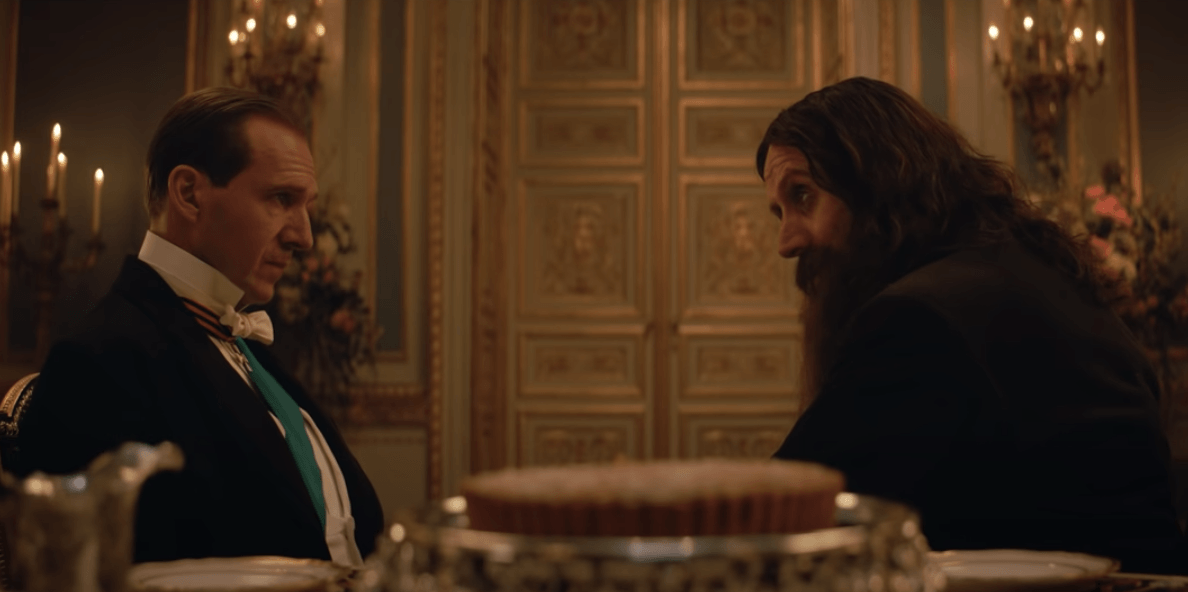SUMMARY
This is AI generated summarization, which may have errors. For context, always refer to the full article.

Minor spoilers ahead.
Director Matthew Vaughn (Kick-Ass, X-Men: First Class) and I seem to have something in common: we both saw 1917, an Oscar-winning “one-take” film about two British soldiers during the First World War. The difference is that due to his vast wealth and resources, Vaughn can direct action films like the Kingsman franchise, which he launched in 2014 with the imaginative Kingsman: The Secret Service.
Perhaps 1917 inspired the renowned action director to create his own WWI historical drama, but he reasoned that adapting it to his over-the-top James Bond-like series would be a winning combination. Instead, like a land mine, the thought detonated right in front of him. The King’s Man tries to be a silly action film, a moralistic tale about pacifism, and a gritty reproduction of the horrors of war, but it fails miserably at all three.
The film’s plot revolves around Orlando Oxford (played competently by Ralph Fiennes), a British aristocrat who becomes the mastermind of the eponymous secret service. His son Conrad (played by Harris Dickinson, who looks startlingly similar to 1917’s lead actor) becomes the story’s emotional focal point due to his desire to fight in the war despite his father’s wishes. Both characters are haunted by the death of Conrad’s mother, Emily, who makes Orlando vow never to let their son see war again.
Orlando’s two loyal subordinates, Shola (Djimon Hounsou) and Polly (Gemma Arterton), join him in combating a shadowy organization known as “The Flock,” which is scheming to pit the German, Russian, and British empires against one another. This evil ring of real-life figures comprising Rasputin (Rhys Ifan), Erik Jan Hanussen (Daniel Brühl), and Mata Hari (Valerie Pachner) is led by a mysterious figure known only as “The Shepard.”
Incorporating some spice into historical events is certainly a promising idea. The assassination of Archduke Franz Ferdinand, the event that sparked WWI, is seen through the eyes of our father and son leads. The real-life Zimmermann Telegram is deciphered by Polly and becomes an essential function in the plot. However, these parts are subsequently upended by bizarre sequences that severely tax one’s ability to suspend disbelief.
In a vacuum, the outlandish action scenes can be immensely entertaining. Seeing Rasputin put on an acrobatic battle against a British aristocrat is solid and entertaining fodder. There’s also some gripping hand-to-hand combat on the war trenches that is genuinely nail-biting. But it’s difficult to appreciate the sum of its parts when you consider the film’s other interests. It wants to denounce the travesties of historical villains and portray sobering moments of real consequence, all while maintaining the Kingsman brand of wackiness. One minute there’s a serious conversation about the follies of war, then in the next scene, Rasputin is homoerotically licking Ralph Fiennes’ legs. Needless to say, it’s a tonal mess.
The script’s conflicting tones aren’t even the worst of its flaws. This film is marred by clunky dialogue that no amount of acting talent can overcome. In a scene where Conrad confronts his father’s pacifist stance on the war, Orlando replies, “It’s not fighting. It’s dying…much like this conversation.” Why the writer would link the deaths of millions in war to the abrupt end of a conversation is beyond me, but it goes to show how absent-minded the film is even in its most dramatic moments.
Of course, it wouldn’t be a prequel without callbacks to now-iconic moments. The quote “Manners maketh man” has been sledgehammered to death. Knife-shoes and opulent tailor shops make a return only to remind the viewers of the first film’s brilliance. It’s saddening to think that a once-promising spy film based on Mark Millar’s original comic series has deflated into a Frankenstein monster of the same action movie tropes and franchise syndromes it once satirized.
What made the original special was seeing Eggsy’s transformation from a stereotypical juvenile delinquent to a refined and noble gentleman who fights the evil rich elite. Even while Harry was present as his mentor, it was Eggsy’s interiority and shrewd personality that tied the story together. Despite Fiennes’ substantial performance, this rendition of Orlando lacks the charm and wit that distinguished the Kingsman protagonists. In fact, almost all of the characters in this prequel barely even scratch the appeal of their original counterparts — well, save for Rasputin.
Multiple films are continuously vying for your attention throughout this affair. There’s a spy espionage film with primitive weapons and reconnaissance, a vicious WWI film depicting actual trench warfare, and a father-son drama rooted in the former’s pacifism. None of these elements seem to be connected in any meaningful way, and the varying themes frequently contradict one another.
For example, Orlando forestalls his son from joining the war but beckons him to join a high-stakes mission to seduce and kill Rapustin, the Russian tsar’s most trusted advisor. Yet, when Conrad begs for his father’s blessing to serve in the war afterward, he still gets spurned. Did they miss the part where they acted independently without the supervision of the British army to assassinate a high-ranking figure, the same type of act that escalated the First World War in the first place? In the name of peace, it appears that reckless and potentially more dangerous behavior is on the table, but when it comes to war, Orlando’s inconsistent pacifism remains steadfast.
The King’s Man may be adequate for some due to its fresh faces, different time period, and engaging action. But behind it all lies a confused film stuck between emulating the seriousness of war films and juggling the campiness of Kingsman films. The most that I took away from this was that I should have been watching 1917 instead. – Rappler.com
Add a comment
How does this make you feel?
There are no comments yet. Add your comment to start the conversation.